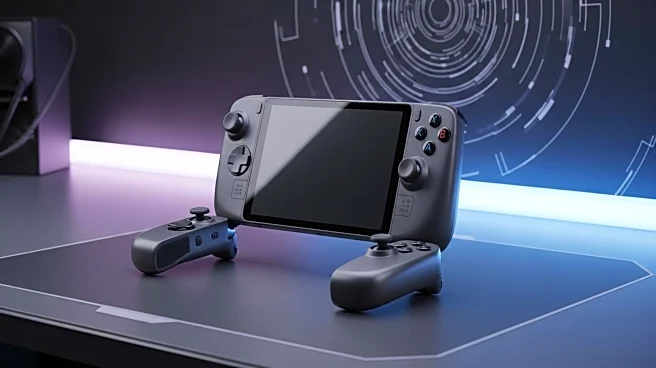What's Happening?
The Nintendo Switch 2 edition of Story of Seasons: Grand Bazaar has been released, offering players an enhanced version of the classic farming simulation game. This edition introduces new mechanics, such as the bazaar system, which allows players to sell their produce and crafted items for additional rewards. The game features improved graphics and voice-acted dialogue, adding depth to character interactions. Players can engage in farming activities, manage their stamina, and participate in seasonal events. The game also includes new elements like Nature Sprites, which enhance the quality of foraged items, and a glider for navigating Zephyr Town.
Why It's Important?
The release of Story of Seasons: Grand Bazaar on the Switch 2 highlights the ongoing popularity of farming simulation games and their ability to evolve with new technology. The game's enhanced features and mechanics demonstrate how classic games can be revitalized to attract both new and returning players. This release is significant for the gaming industry as it showcases the potential for remakes to offer fresh experiences while maintaining the charm of the original. The game's success could influence future remakes and adaptations, encouraging developers to explore innovative ways to update classic titles.
What's Next?
As players explore the new features of Story of Seasons: Grand Bazaar, Nintendo may continue to develop additional content or expansions to enhance the gameplay experience. The game's success could lead to further remakes of other classic titles, leveraging the capabilities of the Switch 2. The positive reception of the game's voice-acted dialogue and improved graphics may set a precedent for future games in the franchise, encouraging developers to prioritize these elements in their designs.
Beyond the Headlines
The game's portrayal of farming and community-building may inspire discussions about sustainable agriculture and social interactions in gaming narratives. Additionally, the game's mechanics related to stamina management could lead to conversations about balancing gameplay difficulty and player engagement. These aspects may influence how future games address real-world issues and player experiences.









